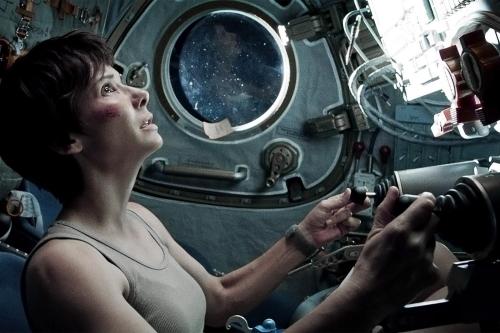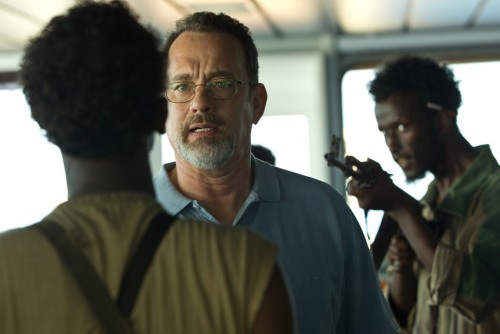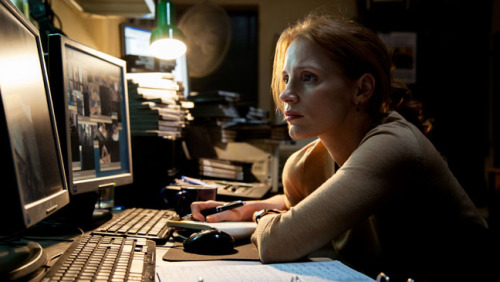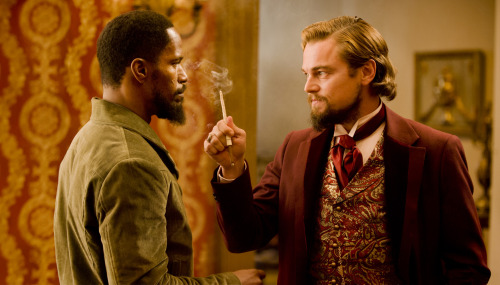The Hobbit: The Desolation of Smaug (2013)
86th Academy Awards 2014
3/5 Stars
Nominated for 3 awards.
Nominated for Best Sound Editing (Brent Burge, Chris Ward), Best Sound Mixing (Christopher Boyes, Michael Hedges, Michael Semanick, Tony Johnson), and Best Visual Effects (David Clayton, Eric Reynolds, Eric Saindon, Joe Letteri).
Watched December 17, 2014.
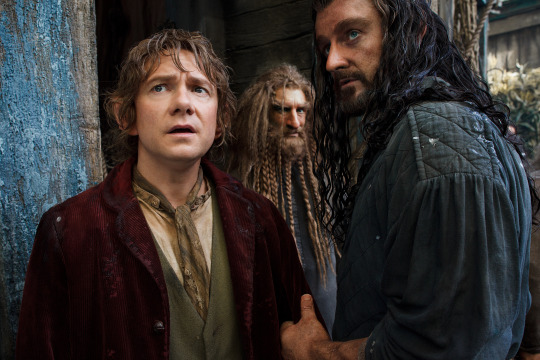
In case you missed my review of the first Hobbit film, check it out here. I would like to reiterate something that I emphasized last time.
“One of the great contrasts in story between The Lord of the Rings and The Hobbit is at their core, their morality and grand stories are very different. The Lord of the Rings largely explored good versus evil and how the worst evil can poison even the best of us. The Hobbit explores lust and the unexplainable want of the wealthy to retain and maintain what they consider theirs, even if they never actually used it. These moral explanations are overly simplified at best, but at their very core, that is what they are. Perhaps The Hobbit‘s morality is less obvious or creates less of an impact. This, combined with the more adventurous, lighthearted story as well as the long-winded three-part film idea, leaves critics disappointed. In The Lord of the Rings, the good versus evil was obvious, the quest was epic, the seriousness and adult story telling nature created a complex world that will captivate for generations. Although The Hobbit is first and foremost a children’s book, this reality is lost on many viewers and critics alike.”
After having seen all three films now, I’m disappointed in the added story telling employed to beef up the plot line to fill three release dates. For the most part Peter Jackson and his exceedingly talented team captured the essence of The Hobbit and Middle Earth very well, but really should have pulled back into at most two films and allowed the children’s book to speak for itself.

The second film is good. Not Lord of the Rings good, or new Star Trek good, but good. It’s the middle of the road and leaves questions unanswered. This is typically the drawback of splitting books into multiple films, or just series in general. There are always loose ends. My biggest disappointment was probably the title of the film in relation to the actual plot, but I won’t say much more than that in case I spoil something for those of you who don’t know the storyline yet.
Bilbo Baggins (Martin Freeman) and crew are back at it. He, the dwarves, and Gandalf have escaped the Misty Mountains, the goblins, and Gollum to find themselves in need of help. They stop at Beorn’s (who happens to be a shape shifter), rest up, and then head off for the dangerous Mirkwood Forest. They encounter giant spiders and unimpressed elves, including our favorite Legloas (Orlando Bloom) and the invented Tauriel (Evangeline Lilly), whom Kili (Aidan Turner), the surprisingly un-dwarf-like dwarf kindles an unconventional relationship with. After many adventures and hardships, they make their way to Lake Town, where they meet Bard (Luke Evans–who looks remarkably like Orlando Bloom). He turns out to be pretty important, and despite helping the dwarves get into the town safely, he isn’t always on their side.

In the end, Thorin (Richard Armitage) works his magic and wins over the town and its Master (Stephen Fry), who arm them, feed them, cloth them, and then send them to the mountain to meet the dragon whom the young folk don’t really believe in anyways, so long has he been hidden away with his great wealth. It has now come time that Bilbo does was he was hired for, and that is to burglar. By this point, the dwarves have become quite fond of him, but their close proximity to the Lonely Mountain kind of distracts them and puts Bilbo in a bit of a spot. We’ll see more of that in the third film, however.
For the most part, there aren’t a lot of complaints I can make about the technicality of this film. It is all exquisite, from the special effects down to the costuming and make-up. These days our filmmakers like using special effects instead of make up and animatronics, which detracts from the reality of the film somewhat, but then again, they’re in Middle Earth. Things are a little different there. The music is epic, the scenery is, well, New Zealand so it’s beautiful. The elves get a good amount of screen time, and although a lot of it is added from the additional story, it’s pretty bad-ass. I love Evangeline Lily and think she makes an excellent elf, but I don’t think they should have added her story line at all. Its benefits are that it shows a different dimension to Legolas that we haven’t seen before, and we as obvious Lord of the Rings fans get to spend more time with an already loved character, but for the most part Tauriel is unnecessary fluff to add screen time.

A good portion of the film is devoted to Bilbo and Smaug, who have a lengthy conversation towards the end. Like his game of riddles with Gollum in the first film, book enthusiasts should like how much content the filmmakers use here. It isn’t on the same level as the Gollum interaction, perhaps because we didn’t know Smaug before this film/book, but at least Benedict Cumberbatch voices him.
If there is anything you have to realize as the audience it is that this is not going to be Lord of the Rings. It is a completely different beast unto itself that has the unfortunate big brother constantly hanging over it. There is too much content, too much expected of it, and it doesn’t deliver precisely what we want to come out of Middle Earth. Thorin is dramatic, Legolas does his classic eye acting, and Bilbo faints on occasion. Kili is the boy band dwarf who doesn’t look like a dwarf who falls in love with an elf and somehow she falls back. There will always be too much added story for the films to be what the Lord of the Rings series became. Even without the book as reference, there is too much going on to make The Hobbit a great success.
I don’t hate it, I don’t love it, but I’ll own it and watch it over and over again. If you haven’t seen the film, I don’t want to discourage you. Something from Peter Jackson and Middle Earth is probably better than a lot of the films out there these days, and its nominations are well deserved. Share your opinions with me, whether they are the same or different. I would love to hear what you think of The Hobbit: The Desolation of Smaug!
